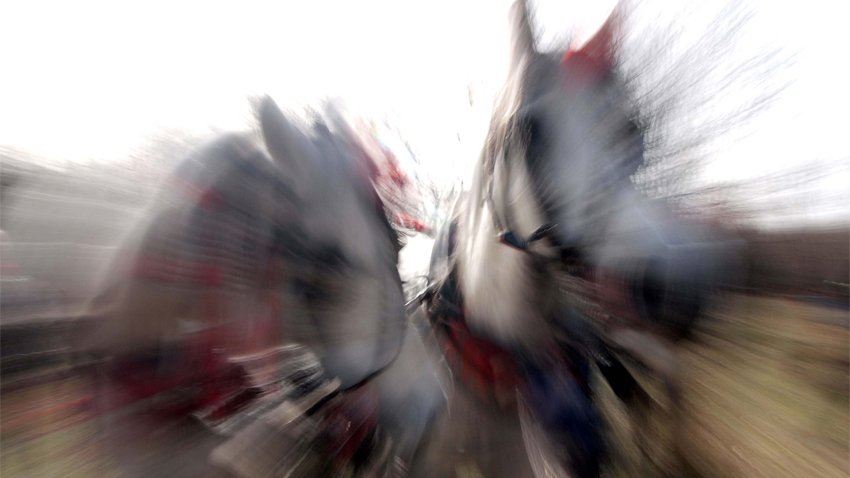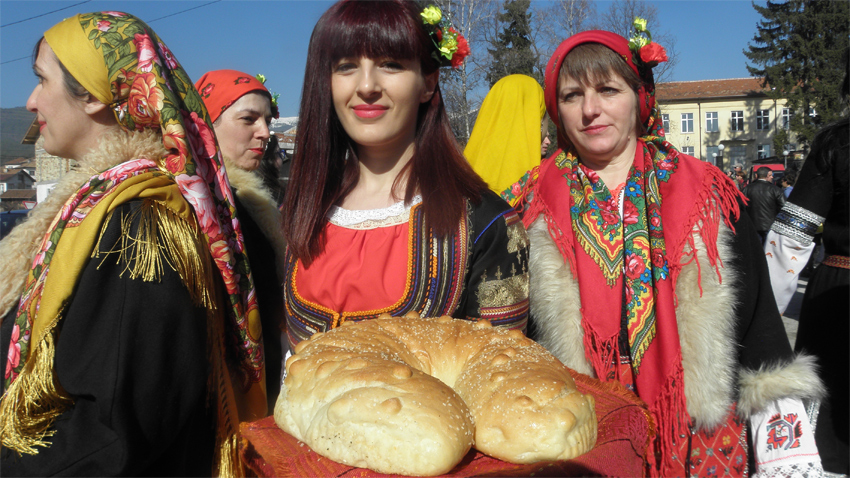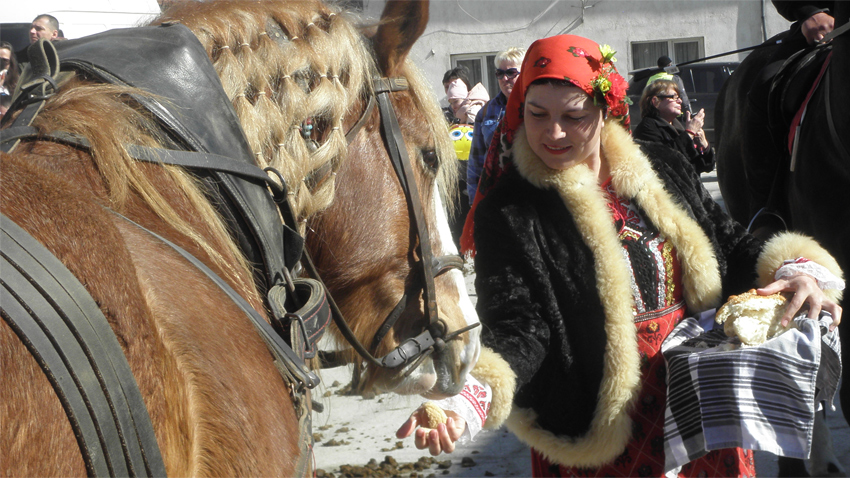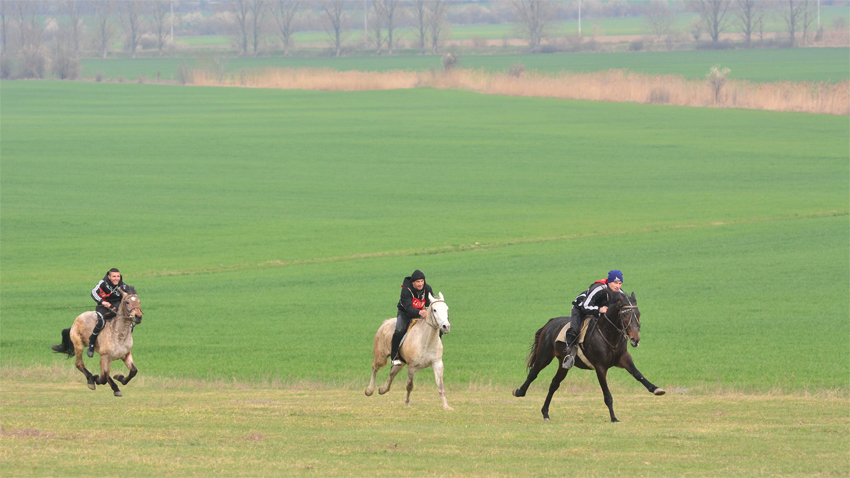 Todorovden, one of the most colorful folk festivals is celebrated on the first Saturday of the Great Lent. It is preceded by Todor'sweek, also called hungry, or even “black week”. During this week, a strict fast is observed. According to folk beliefs, this is a period when people's and animals’ health, as well as crops are in jeopardy, as "talasam” or goblins and other unclean forces roam at night. In some places they called these scary creatures "St. Todor on white horse and grandmother Tudoritsa". These names are another example of intertwining pagan beliefs with Orthodox traditions. Let's recall that in the Early Middle Ages Bulgarians worshiped Saint Todor, unifying the cult of the holy martyrs St. Theodore Stratelates (celebrated by Christians on February 8) and Theodore Tyron (his feast day is February 17 in the Orthodox calendar and November 9 in the Catholic one).
Todorovden, one of the most colorful folk festivals is celebrated on the first Saturday of the Great Lent. It is preceded by Todor'sweek, also called hungry, or even “black week”. During this week, a strict fast is observed. According to folk beliefs, this is a period when people's and animals’ health, as well as crops are in jeopardy, as "talasam” or goblins and other unclean forces roam at night. In some places they called these scary creatures "St. Todor on white horse and grandmother Tudoritsa". These names are another example of intertwining pagan beliefs with Orthodox traditions. Let's recall that in the Early Middle Ages Bulgarians worshiped Saint Todor, unifying the cult of the holy martyrs St. Theodore Stratelates (celebrated by Christians on February 8) and Theodore Tyron (his feast day is February 17 in the Orthodox calendar and November 9 in the Catholic one).
There are many bans during Todor’s Week, affecting mostly women - they should not be late in the evening, girls do not gather to chatter, no washing boards are used; one does not plow or sow in order for people and harvest to remain protected fromlighting and hail. As sung in a popular folk song, St. Todor punishes those who do not respect abstinence:
“This Todor’s week one does not eat, does not drink,
does not spin, does not weave ...
If girls and lads gather, St. Todor's rides his horse on the roofs
and tiles fall on youths’ heads…”
During this particular week it is also forbidden to wash and dry clothes in order to avoid certain diseases such as deafness, "drying up" of parts of the body, etc. Other bans and rituals are performed to protect people from madness and animals from various diseases.
During the feast, before sunrise, girls and brides prepare ritual bread, often in the shape of a horse or horseshoe. They put salt, garlic and walnuts on them. While giving them to neighbors and relatives, women run, kick and make noises, imitating horses. It is believed that more horses and children are born this way.

Todorovden is among the holidays linked to the transition from winter to summer. According to popular ideas, on his day, St. Todor puts a glowing ember in the earth and warms it. Then he takes off his nine winter coats and goes to the Lord to pray for the coming of summer. The saint is considered to be the patron of horses.He himself rides “a white horse with gold horseshoes and silver nails." That is why men give a promise to their horse, preparing it for the traditional horse races onTodorovden that if the horse won, the owner wouldput “silver on the hooves and gold on the bridle".

The feast is among the most popular ones even today. Horse races are organized in Bulgarian towns and villages and winners must bring guests at home. In many places, ritual dishes are prepared for the saint.People who bear the names Todor, Todorka, Theodor, and Theodora also celebrate.

English: Alexander Markov
Photos: BGNESIn the Bulgarian folk tradition, the feasts of Lazarus Saturday and Palm Sunday are related holidays. From Lazarus Saturday (Lazarovden in Bulgaria), girls prepare for the ritual kumichene, which is performed on the morning of Palm Sunday. A very old..
In April and May the visitors of the Strelcha Historical Museum will have the opportunity to get acquainted with the traditions connected with the Easter holiday cycle through the exhibition A Fine Easter, a Finer St. George’s Day . Easter..
Lazarus Saturday is widely known in Bulgaria as Lazarovden , celebrated by Orthodox Bulgarians on the day before Palm Sunday. The main rite is the lazaruvane - a traditional custom centred on themes of love and marriage. Girls over the age of 16,..

+359 2 9336 661
